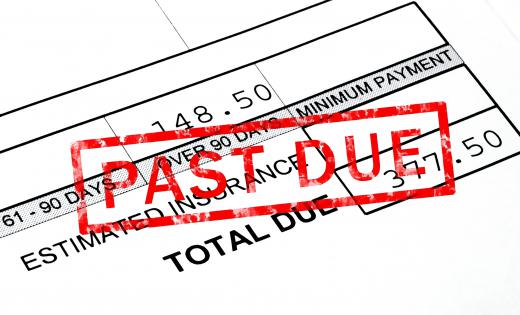At WiseGEEK, we're committed to delivering accurate, trustworthy information. Our expert-authored content is rigorously fact-checked and sourced from credible authorities. Discover how we uphold the highest standards in providing you with reliable knowledge.
What is Solvency?
In the worlds of business and finance, solvency is a term that is used to refer to the current level of financial stability associated with a company or individual. The term can also apply to the status of a particular area of finances, such as insurance, cash flow, or property. To be solvent is to be in a position where it is possible to honor all current financial obligations according to the terms and conditions related to each debt, while still having assets left over for other purposes.
Financial solvency is very important, whether operating a household or a business. Individuals and families seek to build reserves of assets that provide stability to the household, even if the main source of income is interrupted for a time or disappears altogether. A household that is solvent will be able to operate without obligations becoming past due and still have some resources left after those obligations are settled for the month.

In like manner, businesses seek to be in a position where there are always assets on hand to handle company debt in an efficient and timely manner. For a business, the principle of liquidity solvency is particularly important. This simply means that the business has cash in hand to honor current obligations, or at least has assets that can quickly be converted to cash without impacting the ability of the business to continue functioning. In the event that a business becomes insolvent and is unable to renegotiate existing debt into terms that can be managed, there is a good chance the company will be sold or simply dissolved. Any remaining assets are sold and the proceeds are divided among various creditors to settle at least a portion of the outstanding debt.
Businesses usually pay close attention to what is known as the solvency ratio or margin. This is simply the relationship between debt and assets that include cash or holdings that can be converted into cash quickly. A good solvency margin or ratio is one where the business has enough cash on hand to meet current debt without curtailing any other necessary business functions. There are different formulas for calculating solvency ratios and margins, many of them involving factors relevant to the particular industry that the company is associated with.
Timely and accurate financial accounting is one of the most important tools in assessing solvency margins or ratios. By keeping all financial records up to date, it is much easier to identify trends that may indicate a household or business is moving closer to insolvency, and take appropriate action to restore the former level of financial stability.
AS FEATURED ON:
AS FEATURED ON:











Discuss this Article
Post your comments